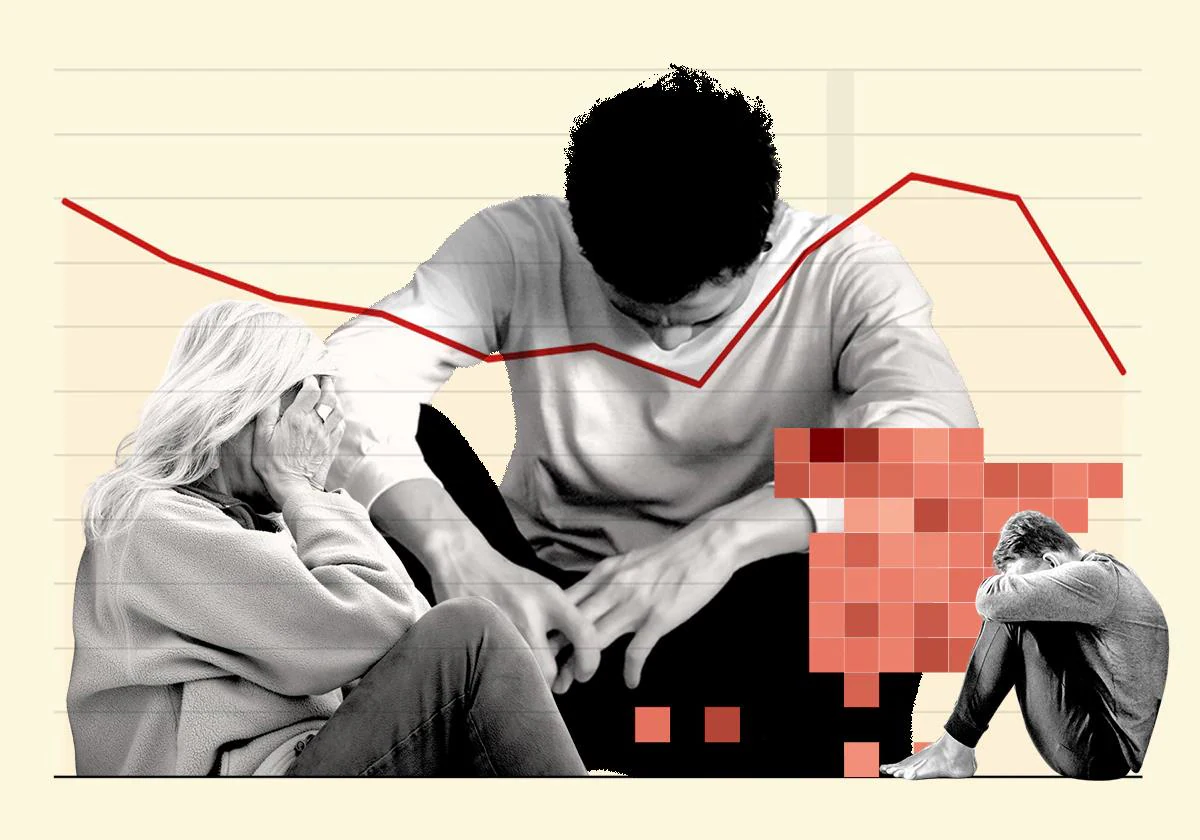World Suicide Prevention Day 2024: Malaga records second lowest number of suicides in the last decade
The upward trend in the province changed in 2023 after a few post-Covid years in which the worst figures were recorded
Malaga province has recorded a decrease in the number of people dying by suicide, latest data shows.
An upward trend - particularly during the years of Covid-19 - has been broken with suicides decreasing in 2023, according to the latest statistics.
The province recorded 126 suicides in 2023, which is 54 fewer than in 2022. Compared to 2021 (the worst since records began), the decrease is more than 60, according to data from Spain's national statistics institute (INE).
The downward trend is also recorded in the suicide rate per 100,000 inhabitants, which in the case of Malaga stands at 7.2, placing the province in 41st place in the whole of Spain. Two years earlier (with the figures for 2021), Malaga had, along with Galicia and Asturias, one of the highest suicide rates in Spain, with no clear cause as to why.
To put this data into context, the province of Lugo recorded a rate of 16 suicides per 100,000 inhabitants, followed by Asturias with 13.2 and Las Palmas with 11.7. The lowest recorded rate in 2023 was in Segovia (3.2) and Zamora (4.8).
The trend that remains unchanged is the division by sex. Cases of suicide among men are more than double those among women, a reality not only in Malaga, but throughout Spain. In 2023, some 91 men died by suicide, while in the case of women, 35 deaths were recorded.
In terms of the rate by sex, Malaga is in 42nd place (out of the 52 provinces) among males with a rate of 10.6 per 100,000 inhabitants, but in the case of females the figure is somewhat worse, as the rate is 3.9, but the province is in 24th place.
No longer a taboo
Why have these figures fallen in Malaga? Whilst experts haven't clearly pointed to a definitive reason, Ana Lacho, president of the La Bandilla association (one of the leading national organsations) and director of the Lajman hospital and psycho-rehabilitation centre said: "The fact that in recent years people have started to talk about suicide is a good thing for sure, what is more, I am convinced that one of the reasons why the number of cases has been gradually increasing is because it was not being talked about".
Lacho said the association set up the first suicide hotline in 2018, and that at that time they detected there were many people who called and recognised they had never told anyone. "This is very relevant, because it is the basis of prevention, which is what we have to do, logically. Now we know that there are risk factors or warning signs that maybe your partner, your parent or your child can detect and seek help quickly," she said.
Although the age group between 29 and 50 years old is the one that is most at risk of suicide, Lacho is particularly concerned about the increase among young people. "There is an increase in self-harm, although not all of them end in suicide. That is why one of our main demands is that schools should introduce some kind of emotional education, and that families should also work on this. Because sometimes it is more important to have that emotional education and to prepare the child from a young age for the circumstances of life, which will be many and some of them very difficult. Sometimes it is more important to have that resilience and to be able to get ahead than for them to know a lot of maths and have suicidal thoughts," she pointed out.
As for the enormous difference in the number of cases between men and women, the director of the Lajman Hospital said: "Men die by suicide more than women because they ask for help less; a fact that is the result of education that tells them men cannot show weakness".
HELPLINES
Telephone 024: the Spanish government's free 24-hour 365-day helpline run by the Red Cross. Real time telephone interpreting service for non-Spanish speakers.
Samaritans in Spain: Free helpline in English for anyone feeling desperate, anxious or alone: Freephone 900 525 100 between 10am and 10pm or email pat@samaritansinspain.com. www.samaritansinspain.com
Anar: Helpline and chat for children and teens (Spanish). 900 202 010 www.anar.org

